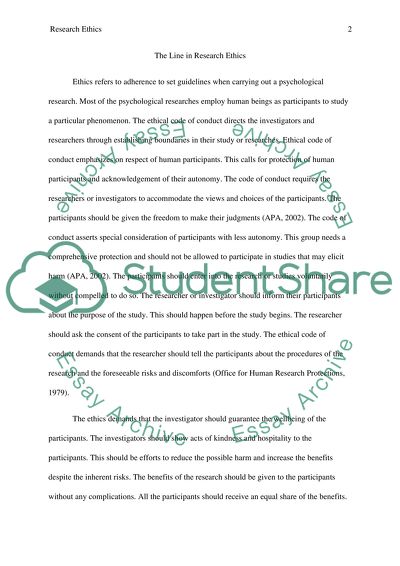Cite this document
(“Examine The Line in Research Ethics Paper Example | Topics and Well Written Essays - 1250 words”, n.d.)
Retrieved from https://studentshare.org/psychology/1447378-examine-the-line-in-research-ethic
Retrieved from https://studentshare.org/psychology/1447378-examine-the-line-in-research-ethic
(Examine The Line in Research Ethics Paper Example | Topics and Well Written Essays - 1250 Words)
https://studentshare.org/psychology/1447378-examine-the-line-in-research-ethic.
https://studentshare.org/psychology/1447378-examine-the-line-in-research-ethic.
“Examine The Line in Research Ethics Paper Example | Topics and Well Written Essays - 1250 Words”, n.d. https://studentshare.org/psychology/1447378-examine-the-line-in-research-ethic.


